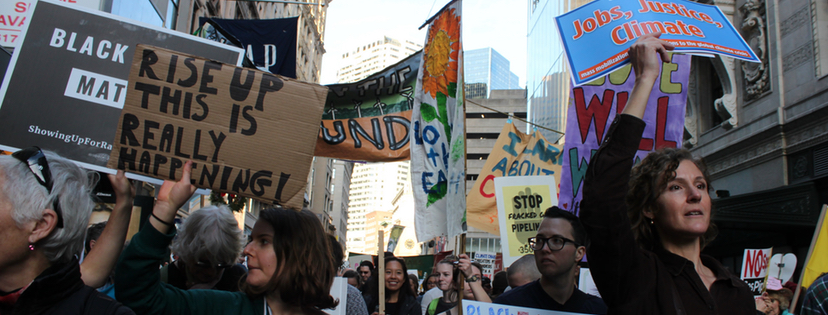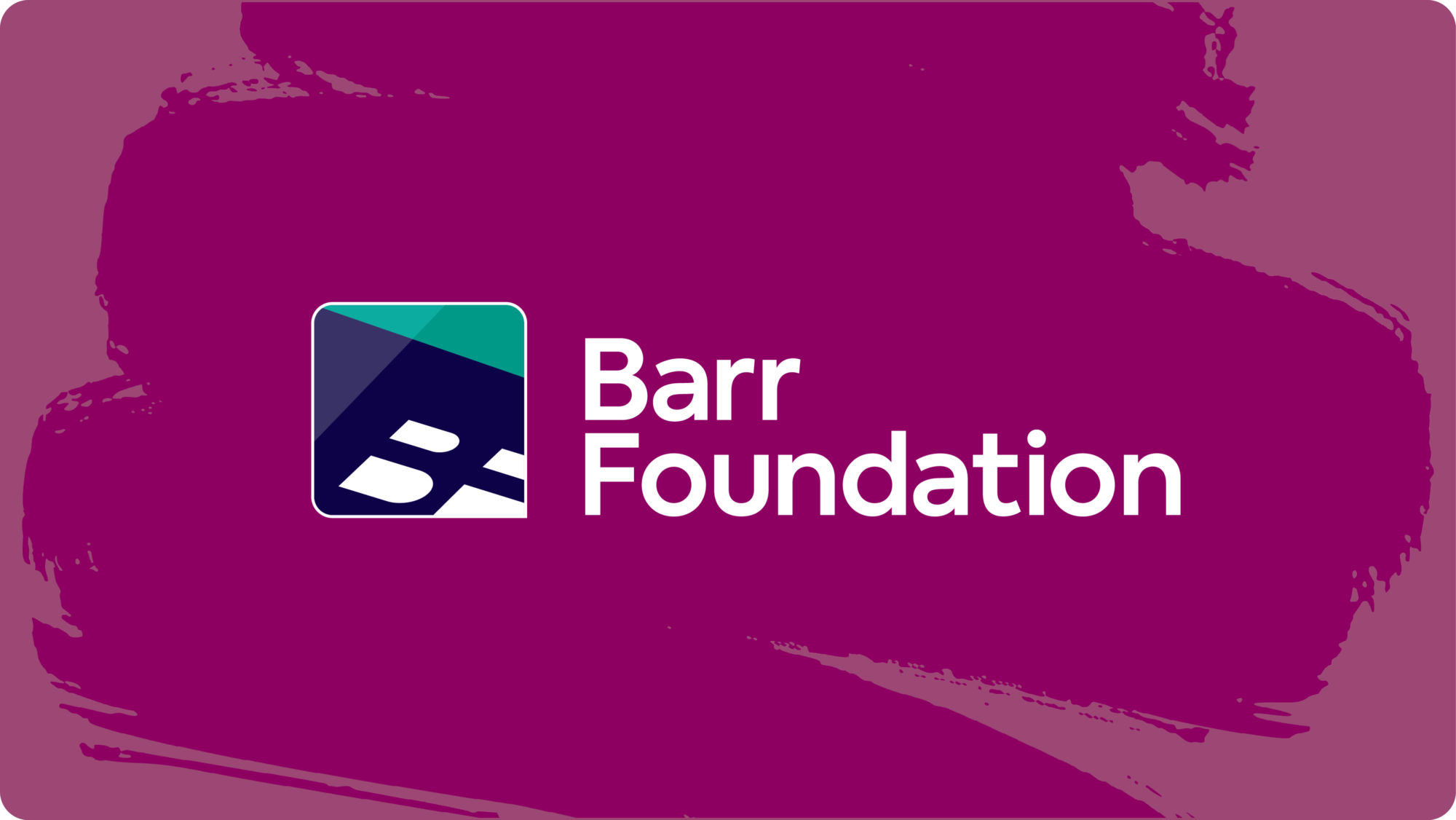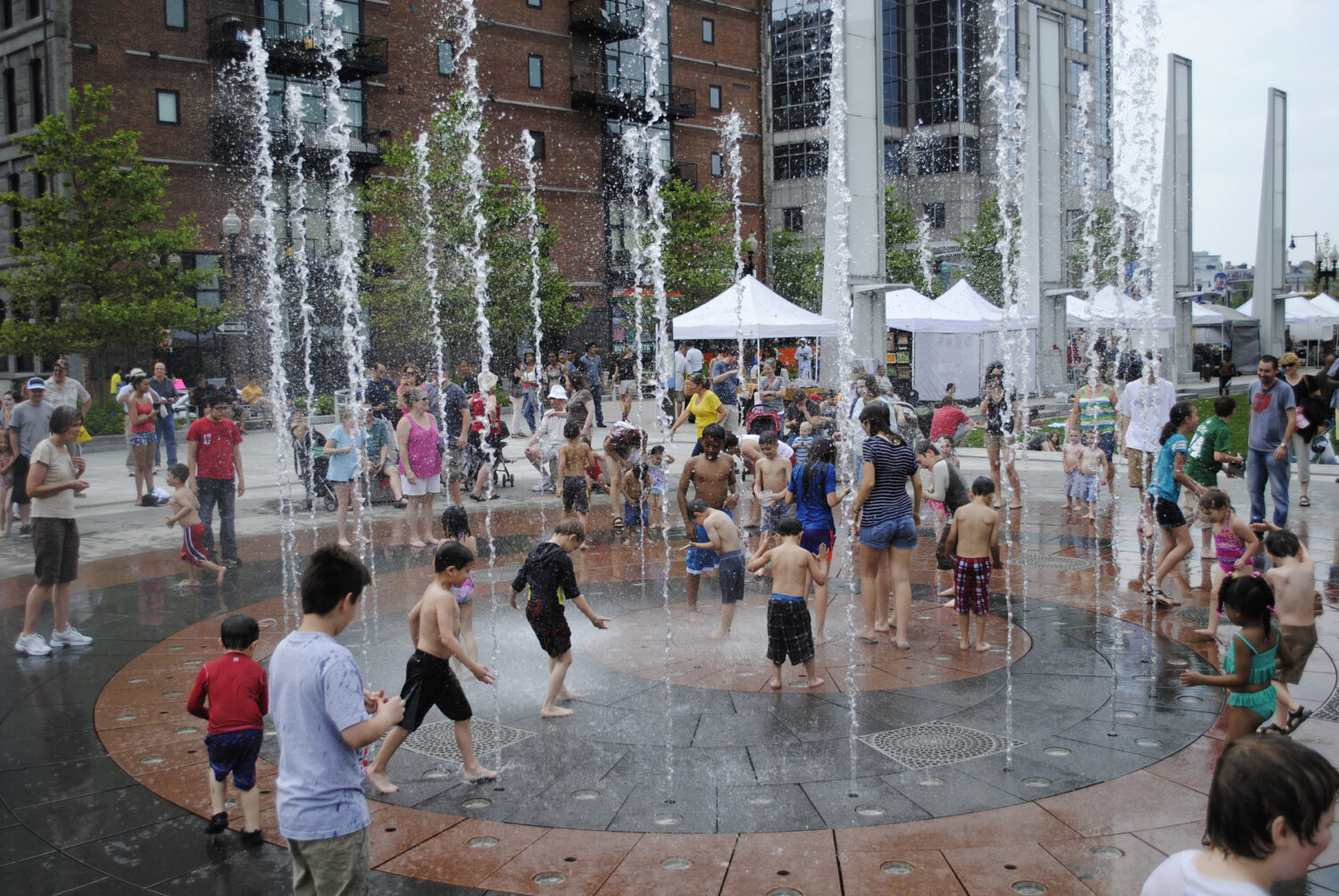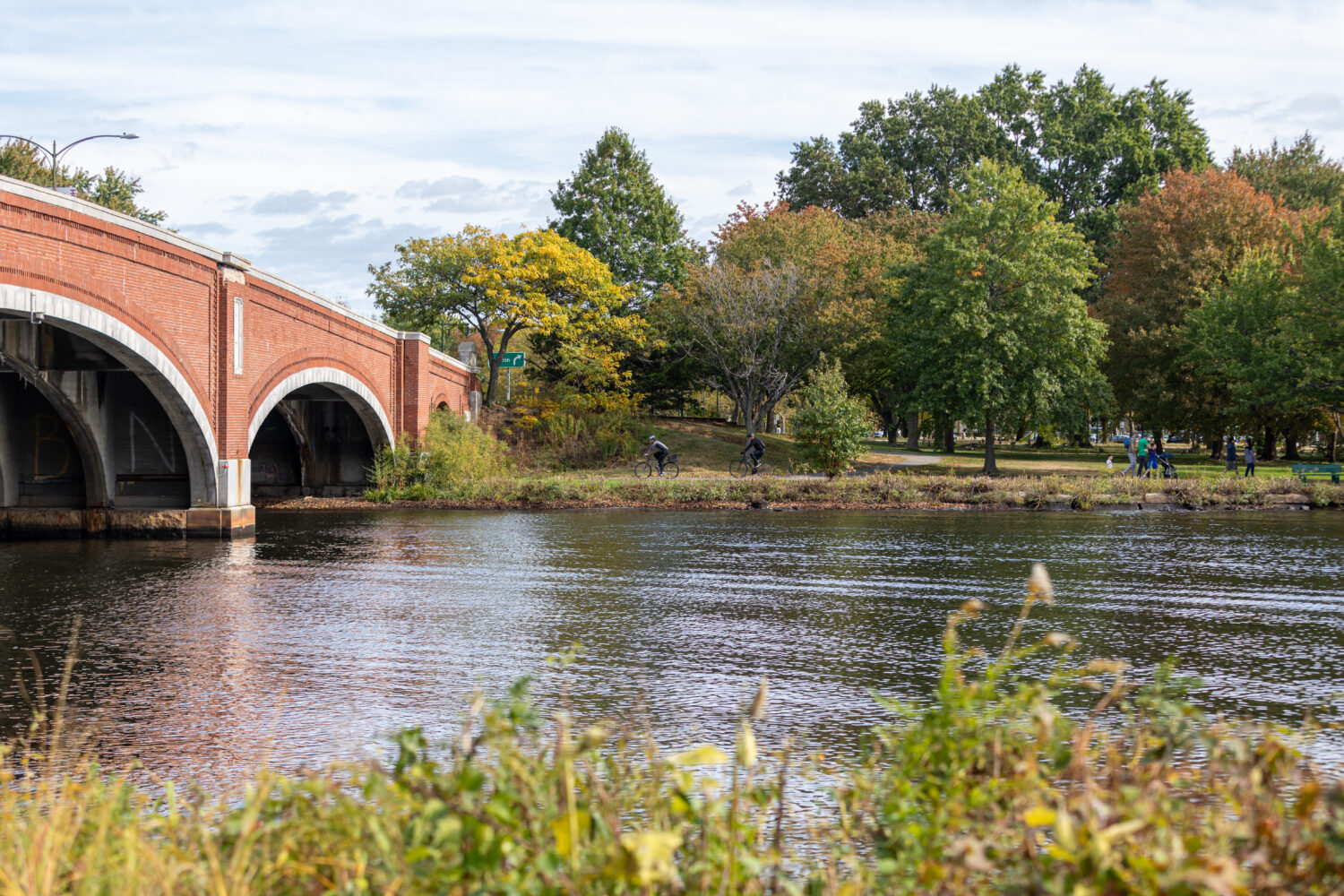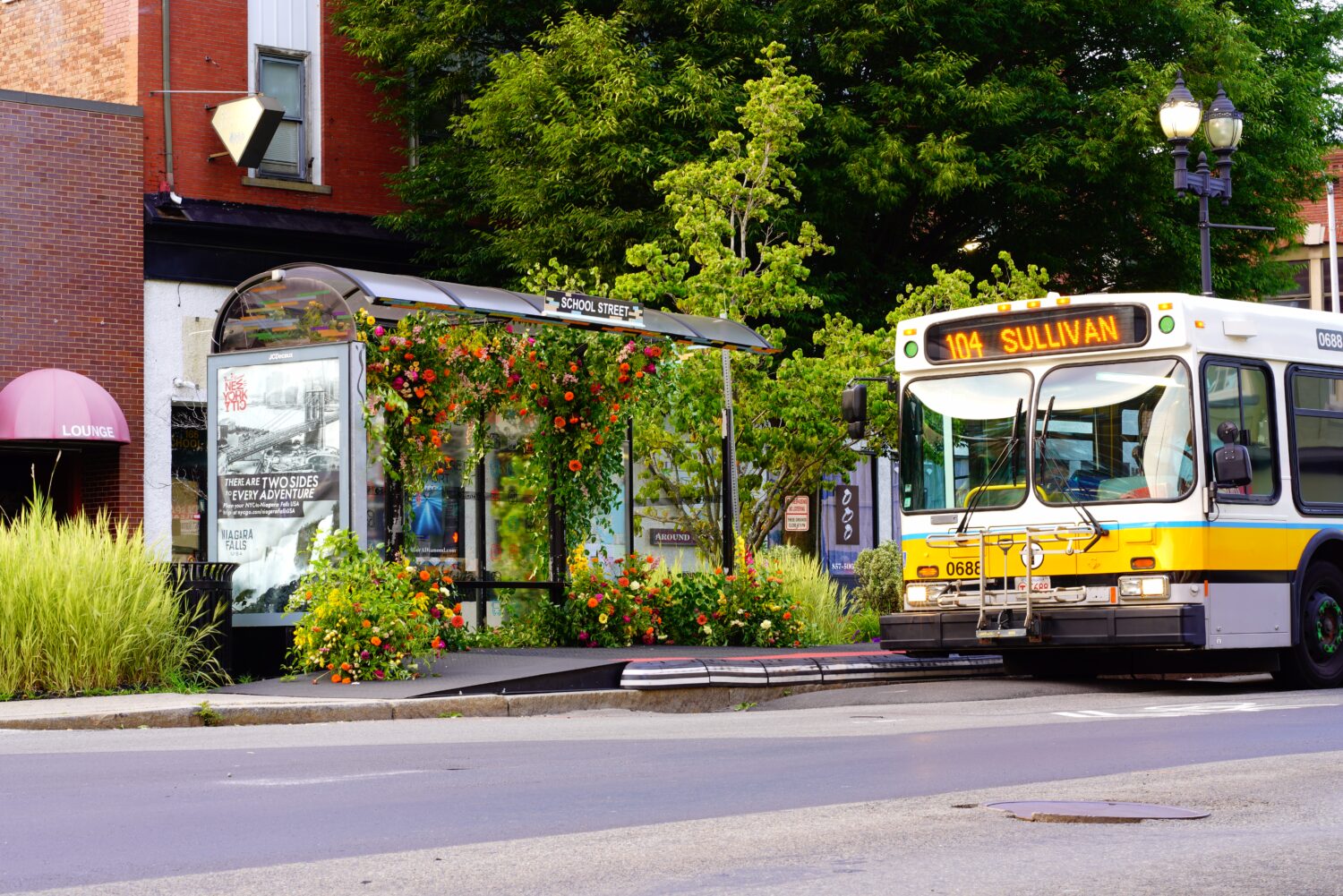Q1: What led you to working in mobility?
Nothing matters if you can’t get to it or it can’t get to you. Growing up in Philadelphia, I saw first-hand how transportation was a tool for granting or limiting access to the things people need. History also shows us that from enslavers using ships to import people to planners building highways through communities, restricting or forcing movement has long been a tool for oppression. Creating a world where people can move freely, in ways that don’t cause collective harm, is key to a just society.
One thing I love about working on mobility at Barr is that we’re thinking about both transportation and land use. How can we support a responsive, sustainable transportation network that allows people to efficiently get from point A to point B? How can we help facilitate clustering points together to make it easier for people to get what they need or want without having to travel long distances? Real solutions to our transportation challenges must be holistic and account for all the intersections of people’s lives.
Q2: Before joining Barr, you were the Communications Manager for the City of Cambridge’s Traffic, Parking, and Transportation Department.
What did you learn from that experience that will shape your work as a program officer?
Listening is an active form of communication. That’s something I reflected on a lot when I worked at the City of Boston, carried over to the City of Cambridge, and have now brought with me to Barr.
We’re sent a lot of messages that tell us more is more and that the best thing for us to do is keep talking and producing. But these approaches ignore that there are people who have been thinking about solutions longer than I’ve been alive and folks who carry generational knowledge about how we can heal our earth. Listening, and ultimately responding, to what others in the community know is the most efficient way for me to participate in this movement.
Q3: In your first Barr blog post, you reflected on why comprehensive solutions to transit fare policies must shift burdens away from people and onto systems.
How does this relate to the larger climate movement?
We know that many individual decisions are driven by the choices presented to us. For example, a significant portion of my personal waste is generated by what I eat. I’d love to buy more food with less packaging. But when I go to the grocery store, the only things I can buy that aren’t wrapped excessively are fruits, vegetables, and nuts. With my many food intolerances I’m further limited in my choices. As a result, I’m often toting home 75% food and 25% trash/recycling.
One reason the Mobility Strategy is part of the Climate Program is that we know transportation is a major source of greenhouse-gas emissions in Massachusetts. I have no discretion over the way the goods I buy are produced or transported. Most of the negative impacts on the climate happen before I even take a product off the shelf. The burden lies on the system, and more specifically those who control it, to make sure we reverse course and maintain a livable earth.
Q4: As part of the Climate Team’s continued work to center racial equity, you led on updating the Climate inquiry process. This included making it clear that the Program is focused on building relationships with more equity-centered organizations led by People of Color.
What other changes do you look forward to implementing and supporting in the Program’s work?
In this moment, where it sometimes feels like everything is on fire, it’s important to move with intention. To me that means being upfront with people and not wasting time on unnecessary processes.
I saw a recent blog post from Nonprofit AF that started with, “Last week, a colleague told me they wrote a grant proposal that totaled 72 pages, for a $5,000 grant.” I immediately thought to myself, “Nope.” I know it happened, but I also know that’s not the approach I want to take to my work. As a funder, I believe my primary responsibility is to invest in work that contributes to the greater good. Unnecessary paperwork reinforces power dynamics and contributes to the culture of urgency. Rather than stressing to make sure each document is in order and edited to perfection, I’d prefer people spend time on real work, which is outside and in communities, not in the grantee portal or my inbox.
After accounting for the huge burden that lengthy proposal requirements put on people, I also wonder about the environmental impact of storing all these documents. Back in the day (and still some today), signatures included “Save a tree, think before you print this email!” Now we need, “Save a tree, think before you create another large document that contributes to the need for more data centers. Remember, the ‘cloud’ is on the ground.”
I’m glad to have joined the Barr Foundation at a time when there’s a strong emphasis on reworking our systems to better support people who work with us. I am excited to help build on the work that started well before I arrived. Updating the inquiries section of our Climate page was one part of that. I hope it makes it easier for people to introduce themselves to us and that, for people who become our grantees or partners, we carry the spirit of the inquiry form throughout our collaboration.
Q5: What intersections do you see between the climate crisis and other issues people are facing?
I think it all goes back to how we live and work. Back when our work was more collective and connected to the earth, we had more freedom and flexibility in how we lived. Now that much, if not most, work globally is related to producing for exponential consumption, things have changed. The earth is responding accordingly.
Before the industrial revolution, many people slept in two chunks rather than one. But, you can get the most out of factory machinery by having the people who operate them work in regimented shifts. So, sleep schedules were altered. The machines need fossil fuels to run. So, we extract continuously no matter the societal cost. As long as so much of our work is organized around increasing profits in perpetuity, there will always be excessive and harmful extraction of resources and a need for a large worker class. It’s not lost on me that as the chosen response to COVID resulted in the death of one million people in the US alone, and as workers continue to win their organizing efforts, we’re also living through an attack on education and reproductive rights. Uteruses are being treated as manufacturing plants for the human bodies that will be pushed toward becoming extensions of the machines.
The system of white supremacy is so complex that at this point it’s also pretty simple. No matter the specific issue, if you want to solve problems in ways that benefit people and our planet, it’s imperative that solutions are defined by the communities who live with the largest negative impacts of oppression. And, since these systems propel themselves by building off each other, if you’re actually addressing the root cause of one, you’re deconstructing others at the same time. That’s why I’m focusing on the larger structure from the intersection of mobility and climate change.
Q6: Looking forward, what’s the most important thing you hope to achieve during your time at Barr? What is your primary focus?
Ensuring our work is rooted in supporting and building community power. And, encouraging others to do the same. It’s the only way out of these crises.
